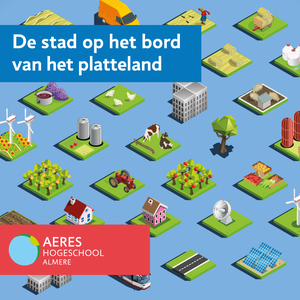In flexible education, recommender systems that support course selection, are considered a viable means to help students in making informed course selections, especially where curricula offer greater flexibility. However, these recommender systems present both potential benefits and looming risks, such as overdependence on technology, biased recommendations, and privacy issues. User control mechanisms in recommender interfaces (or algorithmic affordances) might offer options to address those risks, but they have not been systematically studied yet. This paper presents the outcomes of a design session conducted during the INTERACT23 workshop on Algorithmic Affordances in Recommender Interfaces. This design session yielded insights in how the design of an interface, and specifically the algorithmic affordances in these interfaces, may address the ethical risks and dilemmas of using a recommender in such an impactful context by potentially vulnerable users. Through design and reflection, we discovered a host of design ideas for the interface of a flexible education interface, that can serve as conversation starters for practitioners implementing flexible education. More research is needed to explore these design directions and to gain insights on how they can help to approximate more ethically operating recommender systems.
LINK
Rede, in verkorte vorm uitgesproken bij de aanvaarding van het ambt van lector Sustainable Water Systems aan Hogeschool VHL op donderdag 12 februari 2015 door lector dr. ing. Paul J. van Eijk. De missie van het lectoraat Sustainable Water Systems (SWS) is het verkrijgen van kennis en inzicht in de praktijk van de duurzame ontwikkeling van watersystemen. Het watersysteem wordt benaderd een vanuit brongericht, gebiedsgericht en actorgericht perspectief. De (a)quadruple helix doet een beroep op onze samenleving bij de verspreiding van innovaties. Duurzame watertechnologie wordt geïntegreerd in ruimte en maatschappij om zo de ‘innovation gap’ te verkleinen. Het lectoraat SWS levert via onderzoek en onderwijs een bijdrage aan de maatschappelijke opgave van de watertransitie.
DOCUMENT

De bestuurlijke informatievoorziening voor het tactische en strategische management kan tegenwoordig tot stand komen op basis geavanceerde Executive Information Systems (EIS). Maar 'bestuurlijke informatievoorziening met EIS' vraagt om essentiele basiskennis omtrent besturen en bestuurlijke informatie binnen organisaties. In dit artikel staan met name de toepassing van de tools centraal.
DOCUMENT

Hoe ontwikkelen we een "netto positief" voedselsysteem? Goed voor mens, dier en planeet? Veerkrachtig, en met een eerlijke beloning voor producenten? Daarvoor is een radicale omslag nodig, stelt Frederike Praasterink, lector Future Food Systems aan de HAS Hogeschool. Praktijkgericht onderzoek speelt bij die transitie een belangrijke rol.
DOCUMENT

De bestuurlijke informatievoorziening voor het tactische en strategische management kan tegenwoordig tot stand komen op basis geavanceerde Executive Information Systems (EIS). Maar 'bestuurlijke informatievoorziening met EIS' vraagt om essentiele basiskennis omtrent besturen en bestuurlijke informatie binnen organisaties. In dit artikel komt met name de organisatorische vereisten en inbedding aan bod.
DOCUMENT

Dat niet alleen bedrijven een steeds sterkere belangstelling voor Executive Information Systems krijgen, bewijst de door de Technische Universiteit Eindhoven georganiseerde themadag over EIS. De vakgroep Informatica & Technologie binnen de Faculteit Technische Bedrijfskunde verzorgde op 25 november 1994 deze themadag waarbij naast een aantal praktijksituaties ook concrete onderzoeksresultaten op dit gebied naar voren kwamen.
DOCUMENT

Overal ter wereld zien we dat steden steeds meer het voortouw nemen in de voedsel systeem transitie vanuit verantwoordelijkheden als weerbaarheid, gezondheid en duurzaamheid. Dit drijft ook de herbezinning op regionale voedselsystemen, city-region-food-systems, maar wat betekent dat voor de opgave om stedelingen duurzaam van gezond en veilig voedsel te voorzien met in acht neming van de toenemende diversiteit in de stedelijke samenstelling? Wat betekent dat voor de gewenste omslag in het nabijgelegen agro-food producerende land, welke dilemma’s en welke kansen zijn er? Wat weten we in dat verband van de relatie tussen de agrarische sector en de steden in Flevoland?
DOCUMENT

Afsluiting Tot slot geef ik u een korte samenvatting van mijn openbare les. Ik ben de les begonnen met een verwijzing naar het rapport Micro Systems Technlogy, exploring opportunities van de Stichting Toekomstbeeld der Techniek. Ik heb laten zien dat er inmiddels grote markten zijn ontstaan waarin microsysteemtechnologie een essentiële rol speelt. Ik heb verteld over de wereld van de microsystemen en hoe die in onze dagelijkse omgeving een steeds belangrijker rol gaan spelen. Over microsystemen die steeds kleiner worden, zelfs de grootte van zandkorrels zullen hebben. Ik heb geprobeerd aan te geven dat er mogelijk dramatische veranderingen in onze leefomgeving en in onze levensstijl kunnen gaan optreden. Kleine zaken, grote gevolgen. Tot slot heb ik u mijn plannen ontvouwd voor een tweetal concrete projecten. Hiermee wil ik proberen te helpen met het toepassen van MST-technologie bij bedrijven en in de medische wereld. Door het onderwijs aan concrete projecten te koppelen, wil ik het onderwerp MST aantrekkelijk maken voor de studenten. Studenten die kiezen voor een vak met toekomst. Die toekomst begint nu.
DOCUMENT

Zes lectoren van Hogeschool Utrecht schreven elk een essay over de ontwikkeling van de beroepspraktijk in hun werkveld. Daaraan gekoppeld hebben wij talentvolle hbo-professionals uit datzelfde vakgebied geïnterviewd over de vraag wat zij geleerd hebben op de hogeschool, hoe ze dat in de praktijk toepassen en wat zij nu verder in de praktijk leren. De zes auteurs zijn: Piet Bakker, lector Crossmedia Content, Elly de Bruijn, lector Beroepsonderwijs, Lia van Doorn, lector Innovatieve Maatschappelijke Dienstverlening, Erik Puik, lector Microsysteemtechnologie/Embedded Systems, Hein Roelfsema, lector International Business and Innovation en Marieke Schuurmans, lector Verpleegkundige en Paramedische Zorg voor Mensen met Chronische Aandoeningen.
DOCUMENT

Inaugurele rede uitgesproken bij de aanvaarding van het ambt van lector Duurzame Watersystemen aan hogeschool Van Hall Larenstein op vrijdag 1 november 2019. Voldoende en schoon zoetwater is van levensbelang. Toch is het niet vanzelfsprekend. Door intensivering landbouw, groei van bevolking en welvaart, neemt het gebruik van schoon zoetwater toe. Tegelijkertijd komen grond- en oppervlaktewater meer onder druk te staan van vervuiling, zoals nutriënten, gewasbeschermingsmiddelen, geneesmiddelen en andere microverontreinigingen. Bovendien leidt klimaatverandering tot een nieuwe dynamiek in verdamping en neerslag. Dit spanningsveld is het werkveld van het lectoraat Sustainable water systems. Via toegepast onderzoek draagt het lectoraat bij aan het veiligstellen van voldoende schoon zoetwater voor drinkwater, natuur, landbouw, recreatie en industrie.
DOCUMENT
